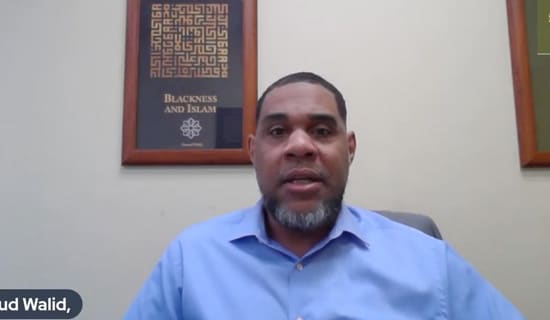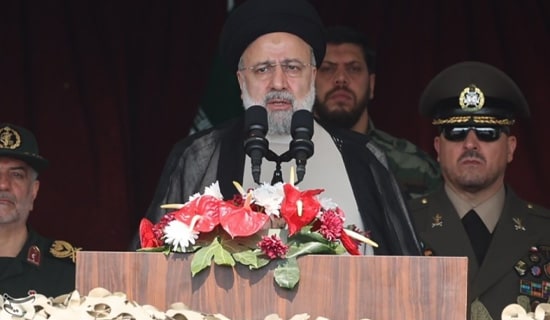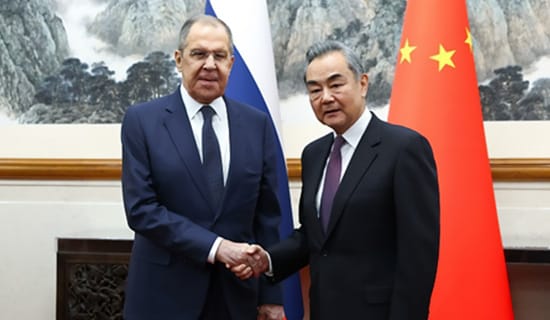
Pakistani Foreign Minister Hina Rabbani Khar
In a recent interview, Pakistani Foreign Minister Hina Rabbani Khar argued that the United States has crossed "red lines" in its relations with Pakistan. Citing the November 2011 NATO raid that killed 24 Pakistani soldiers as a violation of Pakistan's sovereignty, Khar said that "the existing principles [behind the Pakistan-U.S. relations] do not work. So we will have to re-evaluate our attitude from scratch…"
Khar also argued that a solution to the Afghan problem has to emerge from Kabul – a reference to the long-held Pakistani aspirations that the Pakistani-backed Taliban will exert their control on Kabul and force a political outcome. She noted that the Afghan government has not decided on what it wants in Afghanistan after 2014, when international troops leave. "What is to happen is to be decided by Kabul, not Washington, not Berlin, not London and not Islamabad. I think that Kabul has not yet made its final decision about what it wants," she added.
Following are excerpts from the interview:[1]
"There are Basic Principles for This Partnership [with America] and There are Red Lines …. These Red Lines have Been Crossed"
Question: "Your government does not want to continue the way things have been going in terms of the relationship with the United States. What do you expect of Washington?"
Hina Rabbani Khar: "There are basic principles for this partnership and there are red lines marked, and these lines do not leave space for fantasy. And these red lines have been crossed. That means the existing principles do not work. So we will have to re-evaluate our attitude from scratch and will also have to think about what works in favor of our national interest, and what does not.
"Pakistan wants to play a positive role in the region, but no country will be able to play a role when its own interests get violated…."
Question: "Be a little more specific, please. Is Pakistan's relationship with the U.S. still in Pakistan's interest?"
Hina Rabbani Khar: "I would have to lie in saying that we have not been cornered. This recent incident [the November 26, 2011 NATO raid on a Pakistani security post that killed 24 Pakistani soldiers] is inexplicable. There is no justification for this. This is beyond doubt: the attack was continued even when it was clear that the post was Pakistani. This is absolutely unacceptable for Pakistan.
"We cannot justify a partnership that leads to the death of 24 of our soldiers, by friendly fire, from somebody we basically considered an ally. We have lost too many people already because of the militants, and that was not the first incident of the kind."
SUPPORT OUR WORK

"Forty-Eight Nations Can't Get Things Straight in Afghanistan, and Now You Expect the Pakistani Military to Get Things Done All Alone…"
Question: "Your anger is understandable. But NATO has many victims to mourn in Afghanistan, too, because insurgents like the Haqqani Network and also Afghanistan's Taliban and Mullah Omar get support from Pakistan. These groups get to work without disturbance – from your country."
Hina Rabbani Khar: "If you want to show the situation in a massively simplified way and make Pakistan the guilty party, then so be it. Especially if 35,000 dead people in our country should not be enough evidence of our fight against insurgents. We do not fight them for the United States, we do not fight them for Germany, not for the international community, but for our own sake and because these insurgents are a serious danger for us. That is why we have executed various operations against all kinds of militants."
Question: "Against all of them? Also against the Haqqani Network, which, in the eyes of the Western alliance, figures a basic reason for the problems in Afghanistan?"
Hina Rabbani Khar: "We have executed operations against all militant elements that are present in Pakistan. The question is whether you overestimate our capability to fight all of these forces. My answer is this: let's take a look at reality. Forty-eight nations can't get things straight in Afghanistan, and now you expect the Pakistani military to get things done all alone…"
"I Want This Relationship [with the U.S.] to Lose Its Dependence Syndrome; The Tendency of Considering Pakistan a Part of the [Afghan] Problem … is Simply Out of Place"
Question: "You cancelled your participation in the conference on Afghanistan in Bonn [on December 5, 2011] as a reaction to the incident. Why?"
Hina Rabbani Khar: "The incident [the attack on Pakistani security post] is simply too severe. This is about more than just a signal. If we cannot secure our own sovereignty, how are we going to secure that of some other country? Right now we do not have the resources to play a positive role. This incident was callous. It was not only pointed against the Pakistani soldiers who lost their lives, but it was also against the sovereignty of the country. We just cannot accept that."
Question: Are these billions of dollars from Washington the reason that Pakistan will still stay in the partnership with the U.S.?"
Hina Rabbani Khar: "I do not even want to deny the fact that the U.S. supported Pakistan with aid money for decades. But the fact is that in the last one and a half years, the money was not military aid but reimbursement for the expenses that we had to bear for our actions on the border.
"In the civil area, there are many non-governmental [organizations] that the U.S. supports in Pakistan. But in terms of government-to-government, the aid does not amount to more than $300 million: that is dispensable. I want this relationship to lose its dependence syndrome. Sometimes the U.S. Congress demands us to execute operations in this or that region."
Question: "Most of the time that is about the tribal homeland of Waziristan, where it is said that there are many extremists."
Hina Rabbani Khar: "Can you tell me who Pakistan's government is accountable to? The Pakistani parliament or the American Congress? When the Pakistani parliament wants us to give peace a chance, after ten years of effort and death, we need to feel responsible to what our parliament wants and not what the American Congress demands.
"The tendency of considering Pakistan a part of the problem and not the solution is simply out of place."
"I Think That Kabul has Not Yet Made Its Final Decision About What It Wants [in Afghanistan After 2014]"
Question: "So let us talk about Pakistan as part of the solution for Afghanistan. The West will withdraw its fighting troops by 2014. What role can your country play until then?"
Hina Rabbani Khar: "We support the reconciliation process [with the Taliban]. The most important part has to be decided in Kabul. Should there have been signals … that called for Pakistan to stand by Afghanistan's side and play a positive role, I can only say this: Pakistan would have loved to play a positive role. But we cannot do that since, at the moment, it is not even possible in our own country. We have to secure our sovereignty…."
Question: "Pakistan regularly goes with the following argument: we want to and we have to play a role in the matter of Afghanistan."
Hina Rabbani Khar: "But what role would you want to give a country that you consider part of the problem? If people continue to stick with the idea that we are part of the problem, what do you expect from us then?
"The West expects Pakistan to make use of its influence on the Haqqani Network and the Afghan Taliban, and thus make peace talks possible.
"What is to happen is to be decided by Kabul, not Washington, not Berlin, not London and not Islamabad. I think that Kabul has not yet made its final decision about what it wants."
[1] www.the-week.com (India), January 2, 2012. The text of the interview has been lightly edited for clarity.




